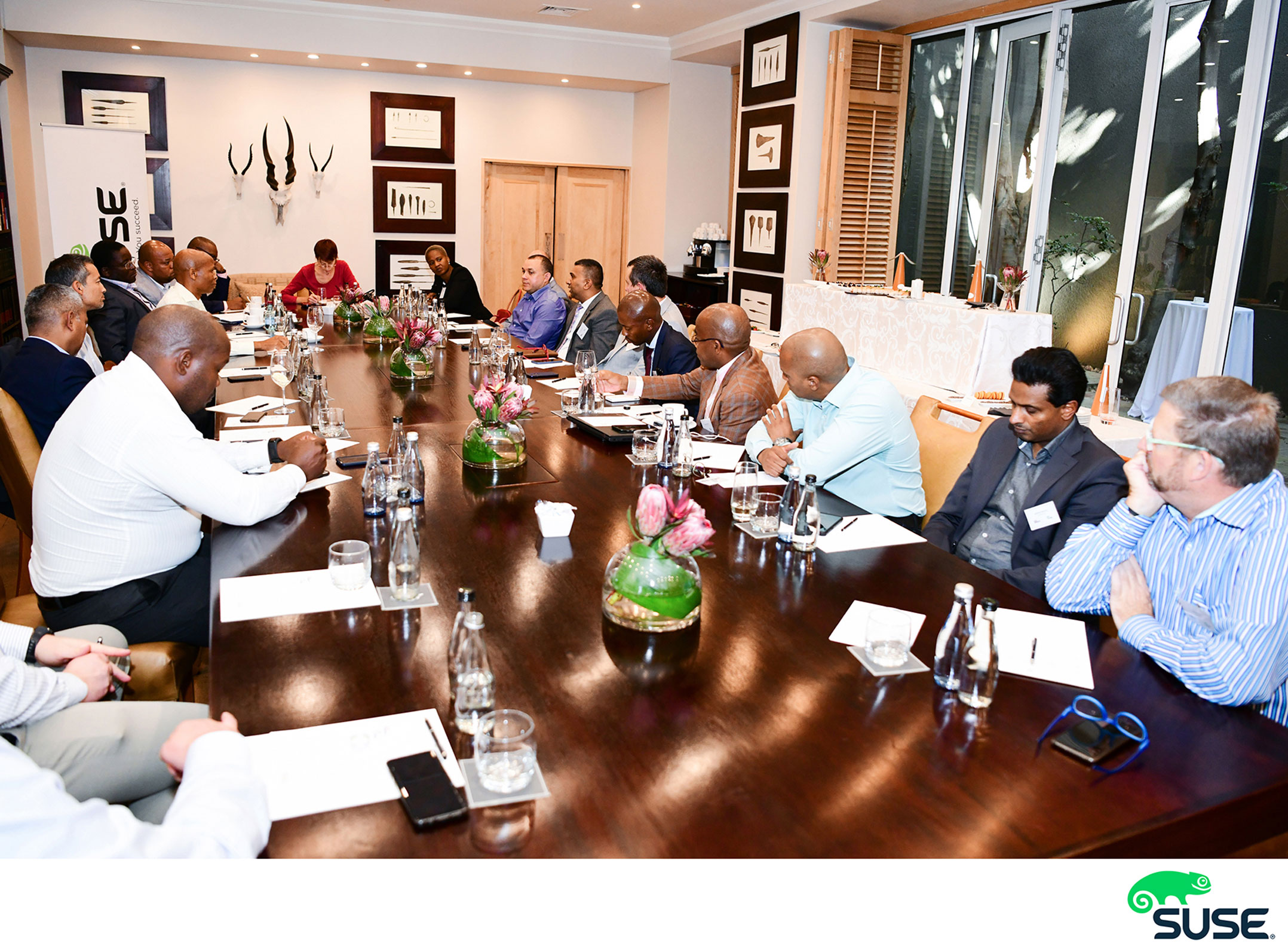 A host of organisations core to keeping South Africa running are moving their operations into the cloud.
A host of organisations core to keeping South Africa running are moving their operations into the cloud.
Eskom, Transnet, the Reserve Bank, South African Airways, Sasol, the Post Office and Vodacom all have a cloud-focused strategy to enhance their stability and reliability and cut their running costs.
They’re also expecting the cloud to enhance as well as support their operations, with these old institutions hoping new cloud-based software will make them more agile and competitive.
IT leaders from many vital organisations exchanged ideas, pain points and advice recently at a TechCentral CIO Perspectives Roundtable, sponsored by SUSE, to discuss “using the cloud for business survival”.
While South Africa is usually a follower rather than an early adopter of technologies, two factors here make business as usual impossible: the erratic electricity supply and the dire shortage of people with the necessary IT skills.
Moving their infrastructure, data and applications into the cloud is enticing, with the massive resources of service providers like Microsoft, Amazon and Google able to offer 24/7 uptime. There’s also the benefit of being able to scale their processing power or storage capacity up and down as their requirements rise and fall, without investing in their own infrastructure.
Seeing the cloud simply as a safety measure is to underestimate its real value of creating agility and resolving business problems through the new technologies it makes available, some panellists stressed.
Value proposition
Discovery has benefited by quickly plugging in facial biometric systems from Amazon Web Services (AWS), short-cutting the long development period that would have otherwise required, says Marcus Portman, Discovery’s chief enterprise architect. The value proposition of the cloud varies according to the type of business you run, he said.
Discovery’s Vitality division is purely cloud based, while its banking side has very strict governance regimes to adhere to. “It’s not always a good idea to drop traditional applications into the cloud unless you can structure them properly,” he says.
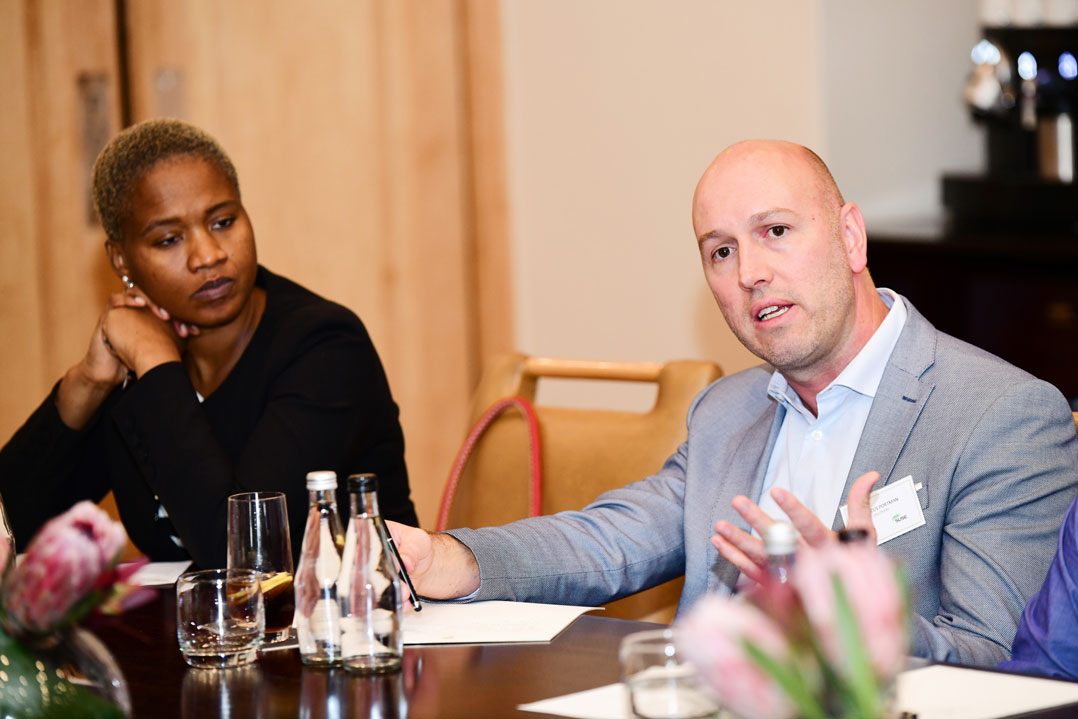
Sasol has a two-sided approach, says its global head of infrastructure, Tshepo Mokgoto. Moving the technologies that run its core operations to the cloud would be difficult, but it’s an obvious step to put its analytical systems there and enhance them with new software available from the cloud service providers.

The cloud is core to Absa’s strategy, says Ebrahim Samodien, its CIO of enterprise functions. “We feel we are on a constant back foot because we are not as advanced as we want to be, yet we are quite advanced compared to other organisations. We benchmark ourselves with organisations that are born in the cloud, and they have a level of flexibility and scalability that we don’t have.”
Samodien points out that South Africa depends heavily on the organisations represented at the TechCentral debate, yet they’re all struggling for growth. “It’s the speed at which we can adopt new technologies,” he says. “A lot of born-in-the-clouds are growing at unbelievable rates because it’s part of their DNA and we are trying to build it into ours.”
Absa finds working with AWS a pleasure, he says, because they’re engineers, not salesmen. “They solve business problems, they don’t solve storage problems. We are looking at how we can use their AI technologies and they’re available to us much more freely than if we had to build it ourselves.”

The South African Post Office could also gain a technology refresh via the cloud, says Maclaud Mafaiti, GM of IT security. Much of the Post Office’s IT is obsolete, and instead of buying new technologies it can access what it needs from the cloud. But he echoes Portman’s worry that moving existing apps to the cloud could be risky. “For new organisations it’s easy to come up with cloud-native apps, but some Post Office apps have been there for ages and it might be very difficult to port and recreate it in the cloud,” he says.

A further hindrance is that people in charge of the budgets often think the cloud isn’t secure. They need to be shown that security measures are in place, and that an organisation can choose where it wants its data to be housed.
The participants agree that security is a shared responsibility. A company needs to understand its own role in ensuring security at the apps level, while the cloud service providers handle security at their level, says Samodien. “Our budget compared with theirs is a drop in the ocean. I’m confident I’m going to get much better security from Amazon than I will ever afford myself.”
It’s also sensible to have a multi-cloud strategy so you can “lift and shift” if something goes wrong, the panellists believe, which you don’t have with physical infrastructure.
While all companies must decide what they are willing or able to put in the cloud, that decision is far more crucial at state-owned entities governed by the National Critical Infrastructure Bill. Eskom was one of the first organisations in the country to aggressively adopt a cloud strategy, seeing it as a better and cheaper way of operating, says its IT portfolio manager, Ezzard de Lange.
Eskom has invested heavily in data centres and is well placed for a cloud-based future, but compliance is a major challenge. Classification tools are being used to determine what data Eskom has and to specify where the infrastructure it sits is physically based, and then to determine what to move.
Some aspects will be handed to a third-party provider with strict service-level agreements, and some services will be bought from the cloud, but some things are off limits. “It would be irresponsible to assume all information can be moved. Some can never, ever traverse into the cloud because it’s highly top secret,” De Lange says. “If that link from a third party goes down, you are down, so you have to adhere to the National Critical Infrastructure Bill. As much as you are unhappy with load shedding, you’d be a lot unhappier if there’s no power at all,” he says.
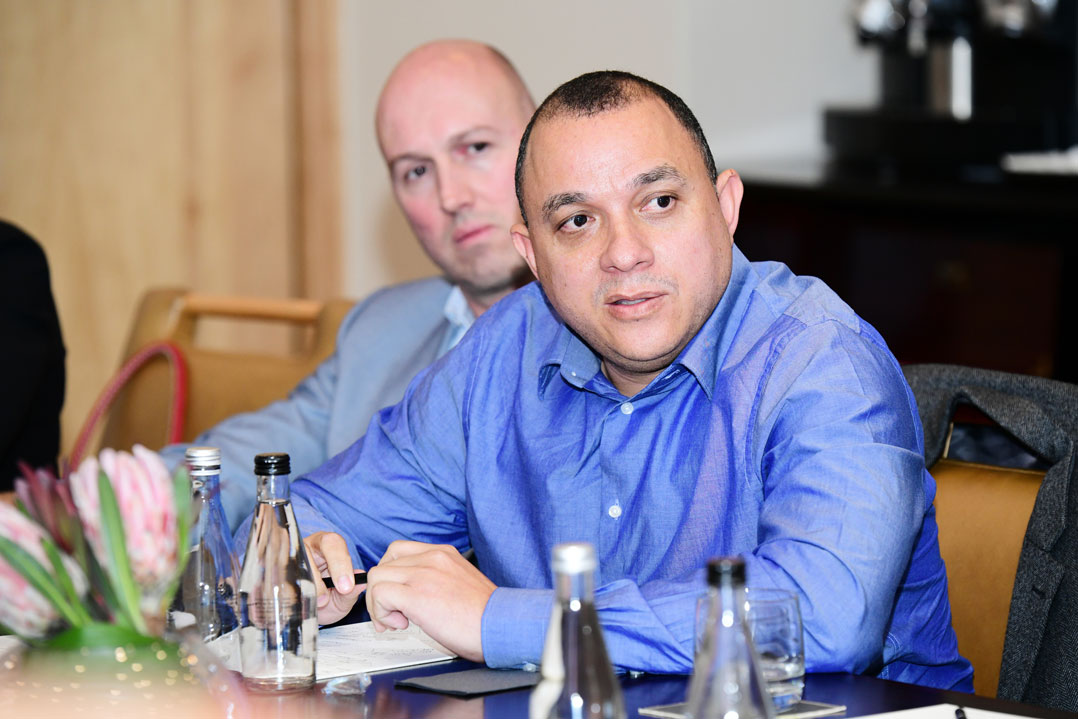
Transnet also has a cloud-based strategy, and is wrangling over what to move and what to retain on-premise. To help with the task, it’s assembled a panel of experts from various IT companies, says project director Shakespeare Hadebe. He complains that one company brought on as a partner in the journey has simply been telling him what he already knew, as it hasn’t bothered to come up with a specific road map for Transnet.
“We had to stop this sales pitch halfway through. A partnership should be mutually beneficial. You must understand my pain points and come up with a solution that understands my infrastructure, because just coming up with emerging technologies and a sales pitch without understanding my dependencies and infrastructure doesn’t assist us,” he says.
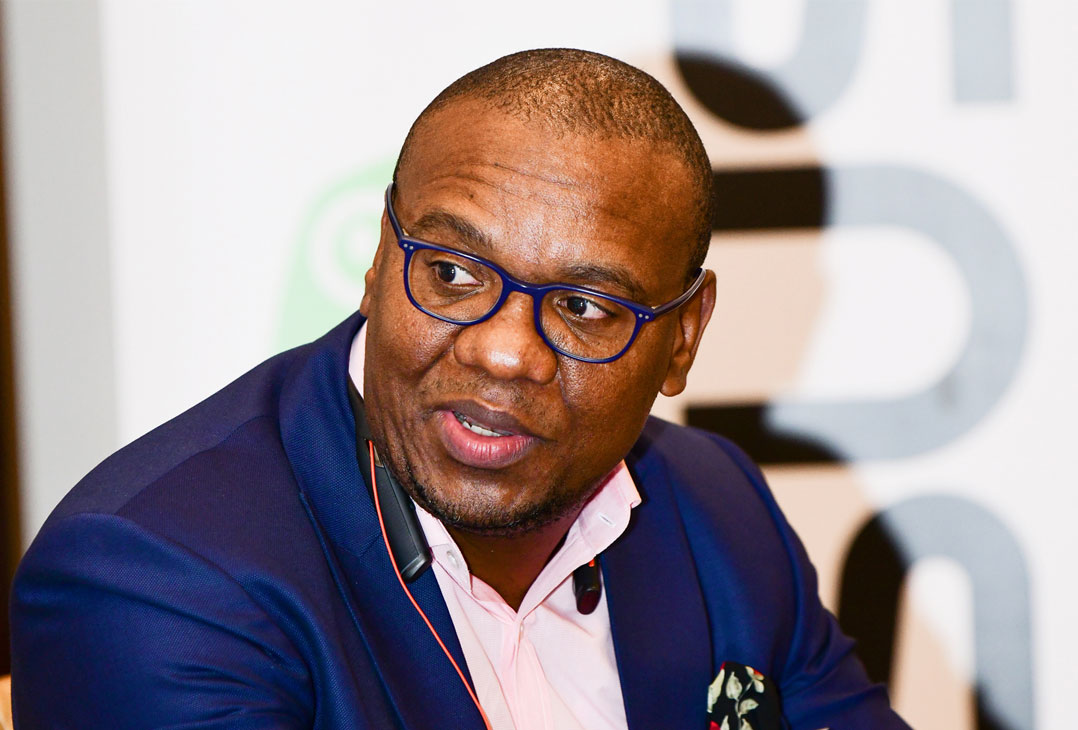
For Pretoria Portland Cement (PPC), edge computing will stay around for some time because without it, this business with some far-flung factories lacking network coverage will struggle, says its CIO, Kgomotso Molefe. “It’s quite easy to get lost in the hype of ‘cloud first’, but there are some businesses that you will literally kill if you try to move them to the cloud.”

Another balance is the adaptability or “intransience” of people, he believes. PPC has a workforce that’s 65% older people and 35% younger. Molefe doesn’t want to make changes that will drive experienced people away, yet he needs to make PPC innovative enough to excite young job-hunters.
Vodacom’s executive head of cloud, hosting and security, Tando Mtintsilana, tallied the various concerns being cited around the table, including the recession paring IT budgets, job security, re-skilling, legacy apps, business readiness, connectivity issues, the legal fine print, how to structure contracts and the inability to customise features in the public cloud. Yet cloud services providers are making record-breaking amounts of money, so obviously their offerings are meeting the needs of businesses around the world, he says. Instead of seeing the cloud as a path to economies of scale, they should focus more on how it can accelerate innovation and solve business problems.

An innovative company eager to move at speed will accept the upfront cost of the move now to gain the benefits of speed, agility, reduced risks and elasticity, agrees Deloitte director Kevin Govender. If the ability to customise certain features is important, they should opt for a private cloud where they own the software and can make adaptations, he says.
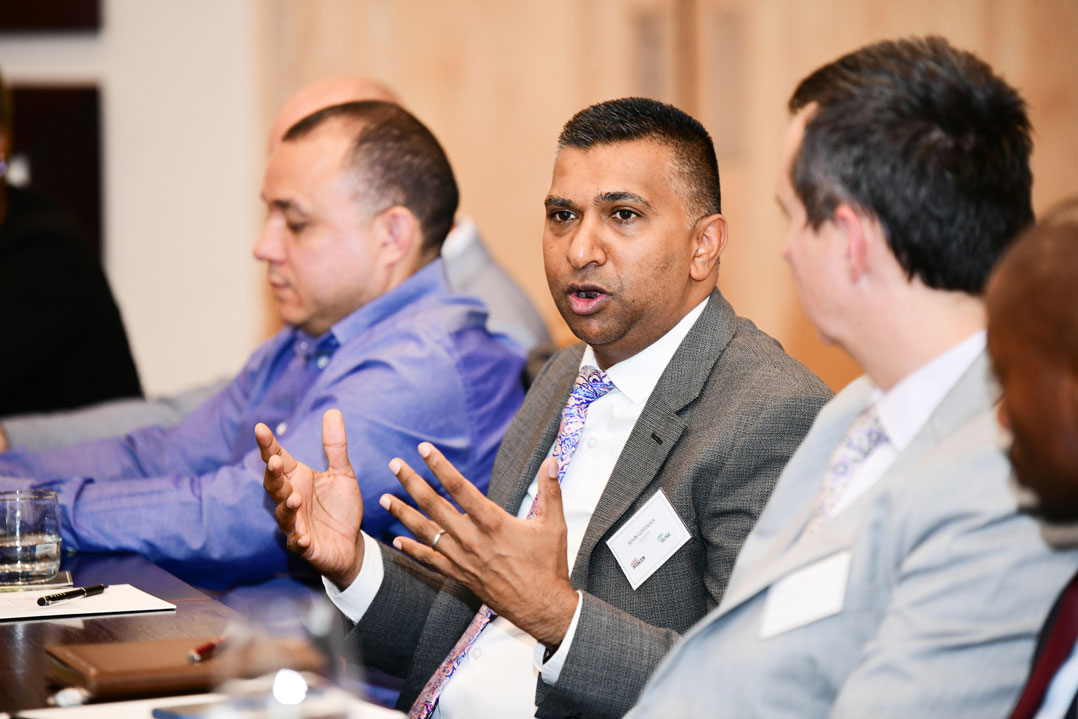
As for security, Govender says companies must start by moving only those things that won’t create a major impact if they’re compromised. “Once you are comfortable with that service provider, it gives you the ability over time to transition more and more, while any new app you get goes straight into the cloud,” he says.
- This promoted content was paid for by the party concerned

